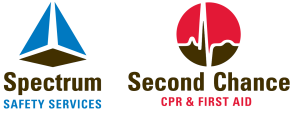 Energy Safety Canada
Energy Safety Canada  In Person
In Person  8 hours
8 hours
Every year workers sustain fatal injuries in confined space. Selecting the right training courses for your health and safety needs is paramount. Our Confined Space Entry and Monitor Training is the most commonly required course. Confined Space Entry Training for Rescue is necessary only if you are going to be part of a rescue team or your employer requires you to have the rescue component. Ask your employer which certification you need.
Confined Space Entry and Monitor Course
Length of Course: 8 hours
Certification
- We offer the Energy Safety Canada Confined Space Entry / Monitor course
- Valid 3 years
- Complies Workplace Health & Safety Standards
Course Outline
- Regional Code of Practice Requirements
- What a Confined Space and Restricted Space is
- Training and Competency Requirements
- Recognition, Evaluation and Control of Hazards & Completing a Hazard Assessment
- Confined Space Levels
- Legislation Requirements (Safety and Protection)
- Hazardous Substances & Energy (Isolation)
- Testing the Atmosphere
- Ventilation and Purging
- Neutralization and Inerting
- Entry Permit System
- Confined Space Monitor Responsibilities
- Emergency Response
- Personal Protective Equipment
- Definitions
Confined Space Rescue Course
Length of Course: 8 hours
Certification
- Spectrum Safety Services
- Valid 3 years
- Complies with Industry and Workplace Health and Safety Standards
Course Outline
- Same as above plus an 8 hour day of Rescue drills
The Entry and Rescue courses have similar curriculums, but the rescue course involves on-site training and drills on pulling a rescue mannequin or a real person out of a confined space. The Entry course is a one-day certification beginning with the identification of a confined space and legal responsibilities. You will learn how to identify hazards, how to control and test for potential confined space dangers, proper PPE (Personal Protective Equipment) needed for entry, and about confined space entry permits.
The course will also teach you about the entry team and its four separate functions, including the rescue team and their responsibilities. Contractor requirements is another component of the training courses and you will understand what would be expected if you were a contractor going onto a site or if a contractor came onto your site.
A more specialized understanding of combustible gas detectors (LEL monitors) will also be one of your training requirements. Part of the course involves a practical with air equipment. You will operate both a Self Contained Breathing Apparatus as well as Supplied Air Breathing Apparatus. The latter is used more often in confined space training and actual entries. The SCBA is designed mostly for performing a rescue operation in the event a worker needs to be extracted.
Your confined space training is complete when your perform a mock rescue and write the simple quiz as a review.
Learn more about how you can advance your career with our certifications
Fill our the contact form and our education specialists will get back to you within 1-2 business days.
Or check our Frequently Asked Questions here.
[gravityform id="4" title="true"]
